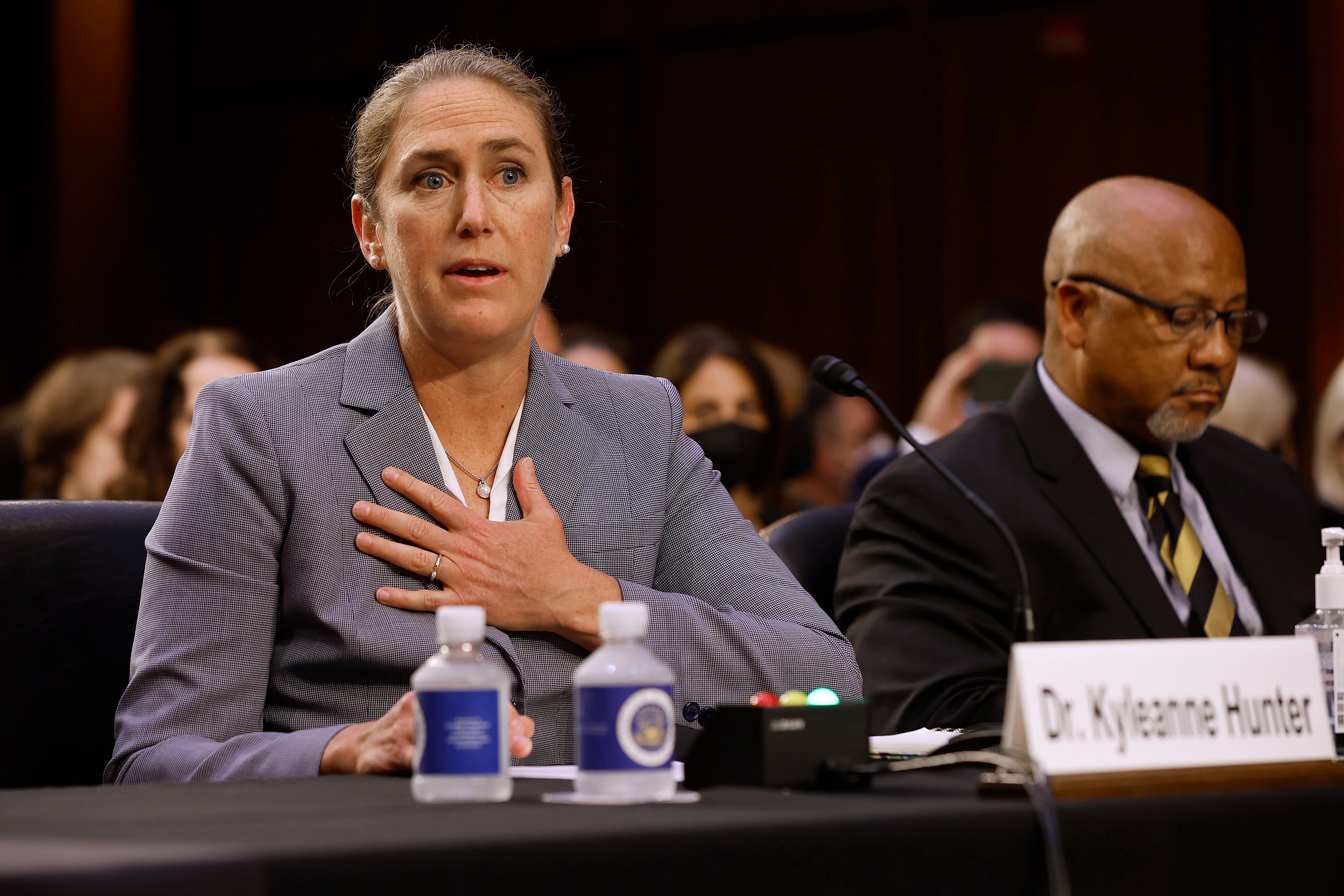The Army is in full damage-control mode following an explosive story that the service had in August lifted a ban on granting waivers to potential recruits with a history of mental health disorders and substance abuse.
On Wednesday morning, in a rare appearance together, the acting Army secretary, the chief of staff and the sergeant major of the Army told reporters that the original USA Today story misconstrued an administrative change that shifted the authority to grant those waivers from Army headquarters down to Army Recruiting Command.
“There’s been no change in standards. The Army hasn’t reduced standards or changed standards,” said Army Chief of Staff Gen. Mark Milley. “And oh, by the way, the Army couldn’t do that even if it wanted to, because the standards are Department of Defense standards.”
What did occur in August, he explained, is that the Army moved the waiver approval authority back down to the commander in charge of Army accessions, where it was before 2009 and where it is for the Navy, Air Force and Marine Corps.
The Army’s chain of command starts with the president, Milley said, and goes down to the defense secretary, the Army secretary and down to commanders. Senior officials like himself, he added, are considered staff.
“Commanders are people who should be authorized with the authorities to make decisions within the United States military,” Milley said. “So a decision was made in August to go ahead and re-empower the commanding general with the authority to consider, grant and waive things.”
But the standards are the same, he added, so giving approval authority back to Maj. Gen. Jeffrey Snow, the current commander of U.S. Army Recruiting Command, would not make it easier to get a waiver.
The Army has long accepted waiver applications for a host of generally disqualifying factors, from sub-optimal hearing to violent felonies. The Army has not, however, approved all of them, based on a list of hard-stops, Sergeant Major of the Army Dan Dailey said.
“There are waivers. There have been, there always will be,” Dailey said. “Your sergeant major of the Army is on a waiver, when I came in 30 years ago.”
Dailey’s waiver pertained to his hearing, he added.
To clarify, Milley read off a list of factors that will automatically disqualify someone seeking a waiver from service:
- Conviction or adverse adjudication for a sexual offense.
- Any felony committed as an adult.
- Juvenile criminal drug use, other than marijuana.
- Mood disorders, including major depression, cyclothemia and bipolar disorder.
- Drug or alcohol dependence not in remission, with at least a year sober.
- Any condition involving self-mutilation.
- Any suicide attempt or ideations with a plan to carry them out.
“Considering a waiver is not the same as granting a waiver,” Milley said. “Since August of ’17 there has been no one [who has] come in the Army who has not met the Department of Defense standards for behavioral health and personal conduct.”
However, as Deputy Chief of Staff for Personnel Lt. Gen. Thomas Seamands said in a statement Monday, the Army still considers waivers and will grant them where appropriate.
RELATED

Dailey offered a possible example.
“If a young man or woman was taken to a hospital because they cut themselves, and a doctor said that was some form of self-mutilation, and it never happened again — then we’ll look at that case, and we’ll make a determination with medical professionals, with behavioral health professionals, and, ultimately, command,” he said.
“To be automatically exclusionary, ladies and gentlemen — to the American public, on certain conditions — is unfair,” Dailey added. “That’s what the chief of staff of the Army is saying. We have to give it due diligence.”
Milley added that a brand — technically a form of self-mutilation — could be allowed in certain circumstances, such as a fraternity initiation rite.
“Is that self-mutilation?” he said. “Or is that a brand in lieu of a tattoo?”
All of these issues go through multiple layers of screening with experts from Army Medical Command and others before a final determination from USAREC, officials said.
As far as the Senate holding up any defense nominations based on the waiver controversy, acting Army Secretary Ryan McCarthy said he had a lengthy discussion with Sen. John McCain, R-Ariz., at a Twilight Tattoo in the senator’s honor on Tuesday night.
RELATED

“They just wanted us to send them back a note in writing, which I believe will be sent today,” McCarthy said.
“Immediately after this session,” Milley said.
Meghann Myers is the Pentagon bureau chief at Military Times. She covers operations, policy, personnel, leadership and other issues affecting service members.





